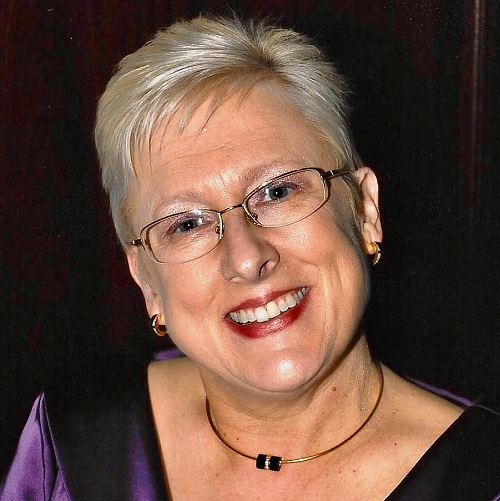Commentary on Genesis 18:1-10a
The saga of Sarah and Abraham rivals any television soap opera, with unbelievable plot twists that would make great headlines on a tabloid displayed at the checkout counter. “75-year-old man uproots family and leaves on a trip to an undisclosed destination at God’s command.” “Husband trades his wife to the Pharaoh for his own safety!” When we join the story in Genesis 18, God has made a covenant with this elderly couple, declaring that they will have countless descendants. The ridiculous nature of the promise is obvious: Sarah and Abraham are in the sunset years of their life, and they have no children because Sarah “was barren.”
In the Ancient Near East, a woman was valued for according to the productivity of her womb; her primary role was to produce offspring for her husband, in particular, to provide a son to inherit the family estate. Being barren was a serious problem; it meant that the woman could not fulfill her purpose in life. However, it seems that Sarah’s barrenness had not been a major obstacle for the couple. There were other legal ways for a man to secure a male heir; he could adopt a male servant, which was what Abraham intended to do with Eliezer.
With that detail settled, Abraham and Sarah had lived quite well, even without children. That is until God entered the story with a promise that Abraham would have a biological heir. At this point, though, God had not said anything to Sarah about becoming a mother.
Abraham and Sarah had pitched their tents by the Oaks of Mamre at Hebron, and one day Abraham sees three strangers approaching their camp. The storyteller has informed us that these men are representatives of the Holy, but Abraham does not have this insider information when he invites them to stop and enjoy a break from their journeys. With their acceptance of his invitation, Abraham jumps into full hospitality mode.
Hospitality customs were a vital part of the culture of the ancient near east. The people followed these customs as formal, even sacred, codes of conduct. The environment of the desert and arid land in most of the Middle East is harsh. For a traveler, access to water and food was a matter of life and death. Also, they needed a safe place to spend the night, and there was no Motel 6 to leave the light on for you. Without the hospitality of strangers, a traveler could die. When one invited a guest into their home, the host was required to provide that person with food, water, and safety.
Many preachers and interpreters have used this text to lift up Abraham as the epitome of hospitality, but we may need to abandon that image from a close reading of the story. While he does make the invitation to the strangers, he does very little of the work to provide them with food to eat. First, he runs to the tent and tells Sarah to make cakes, and then Abraham gives the fatted calf to a servant who slaughters and prepares the meat. Then Abraham presents the meal to the guests as if it was all his doing and gets the credit for being such a great host.
One way to address this text would be to ask ourselves this question: “Who are the people who work behind the scenes to make us look good and comfortable?” These might include the cooks, servers, and those who bus tables, wash dishes and take out the garbage in restaurants. If we look behind this level of workers, we could include those who grow the elements for our meals, the ones who harvest the crops, and those who process these items into usable food. We might remember those who clean the building and tend to the maintenance in a congregation. How do we recognize these important participants in our lives as well as in the biblical story?
Focusing on Sarah, both the writers of Genesis and the Revised Common Lectionary committee have made certain that she remains off stage. The selection for this Sunday ends in verse 10a, leaving Sarah at the entrance of the tent, just as the storytellers leave her on the margins. After helping to prepare the food for the guests, Sarah does not get to enjoy the meal. Even more problematic is that the conversation between Abraham and the visitors directly concerns Sarah and her well-being. The guests announce that Sarah will have a child “in due season,” even though she is over 90 years old and well past childbearing age. Many have imagined that Sarah would have been joyful about becoming a mother. Would she have felt that way?
Going through labor in the ancient world was dangerous enough for a young female. Imagine how much more difficult pregnancy would be for Sarah. Her laughter in verse 10b (omitted by the lectionary selection) was more about the ridiculousness of Abraham and her being able to do what was necessary for Sarah to become pregnant. It is also important to remember that this is the first time Sarah has heard (or overheard) that she is required to bear the child of promise. Abraham has heard it at least three times (Genesis 12:1-9; 15: 1-21; & 17:1-27), and even he laughed when the Divine qualified that the child must be born through him and Sarah (Genesis 17:7). While the story emphasizes that nothing is “too wonderful for the LORD” (verse 14), Sarah’s reaction may remind us that “too wonderful” may not be what is best for everyone.
Once again, the story raises a question: “Whom do we leave on the margins while we make decisions that directly affect their lives?” Too often, the privileged few leave the marginalized out of the conversations, assuming that they know what is best and are surprised by their reactions. Without their voices, the temptation is to choose actions that do not upset the status quo. How different would it be if all were included in the decision-making? Imagine the possibilities of inclusion and the world we could create.


July 17, 2022